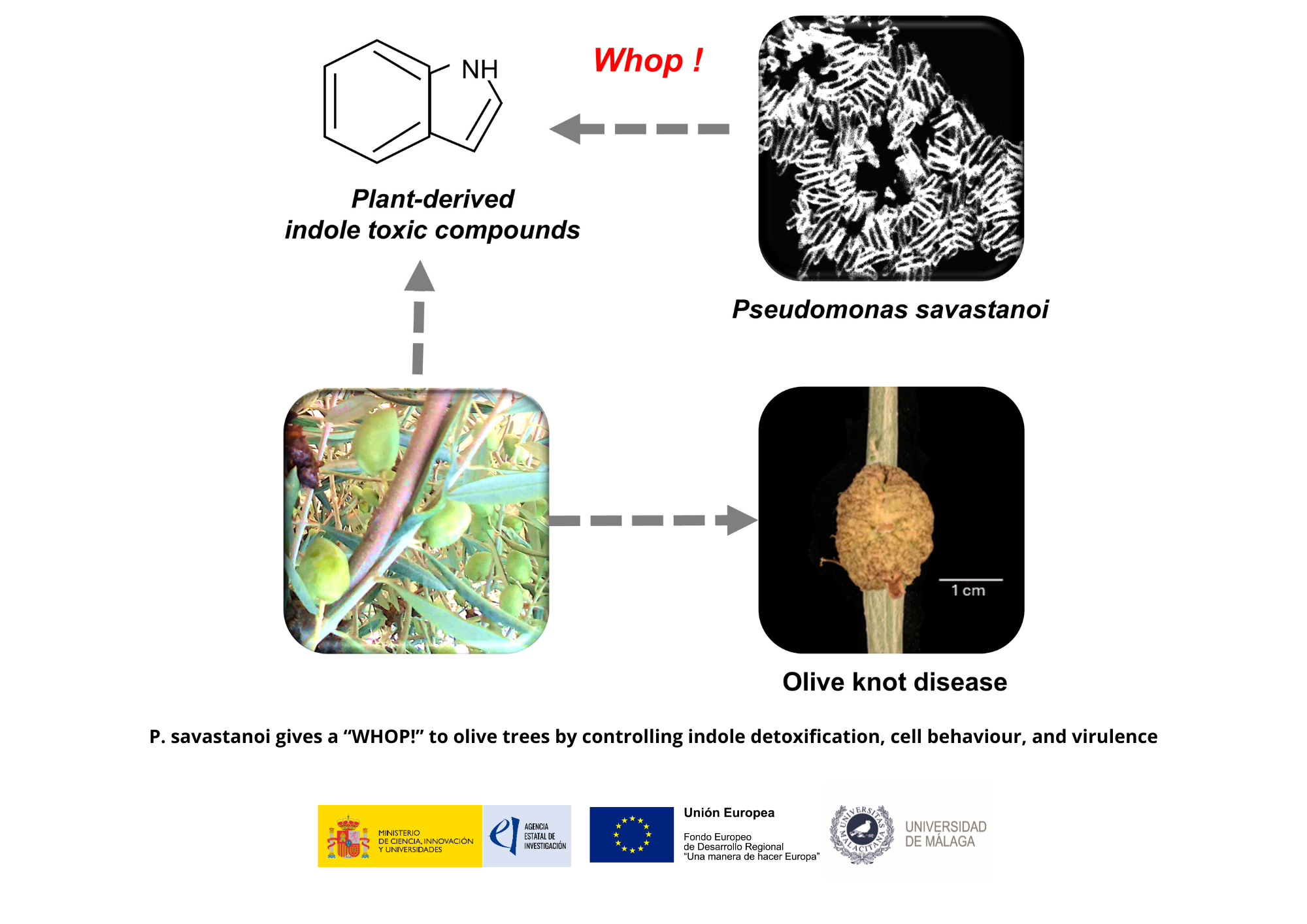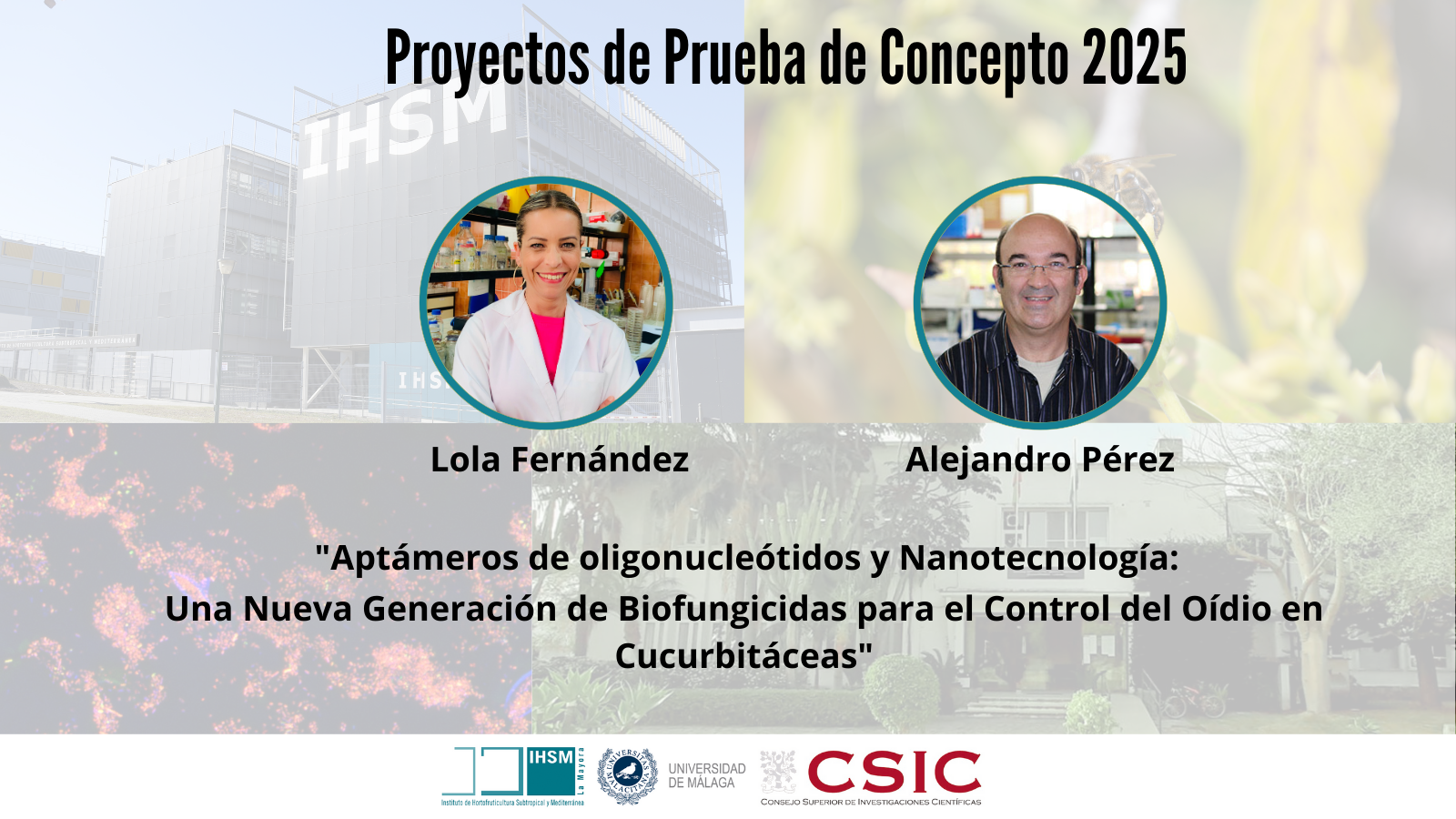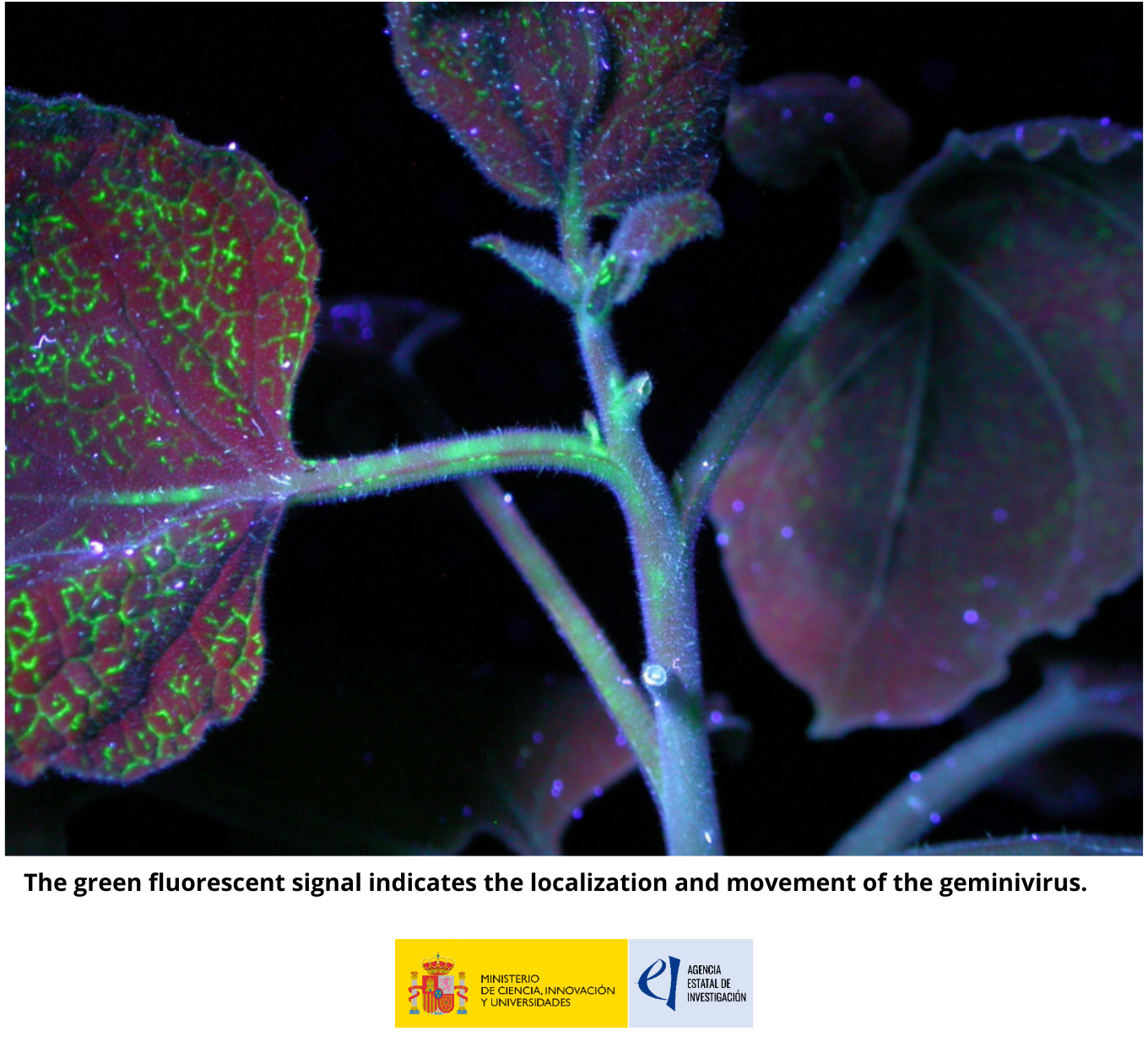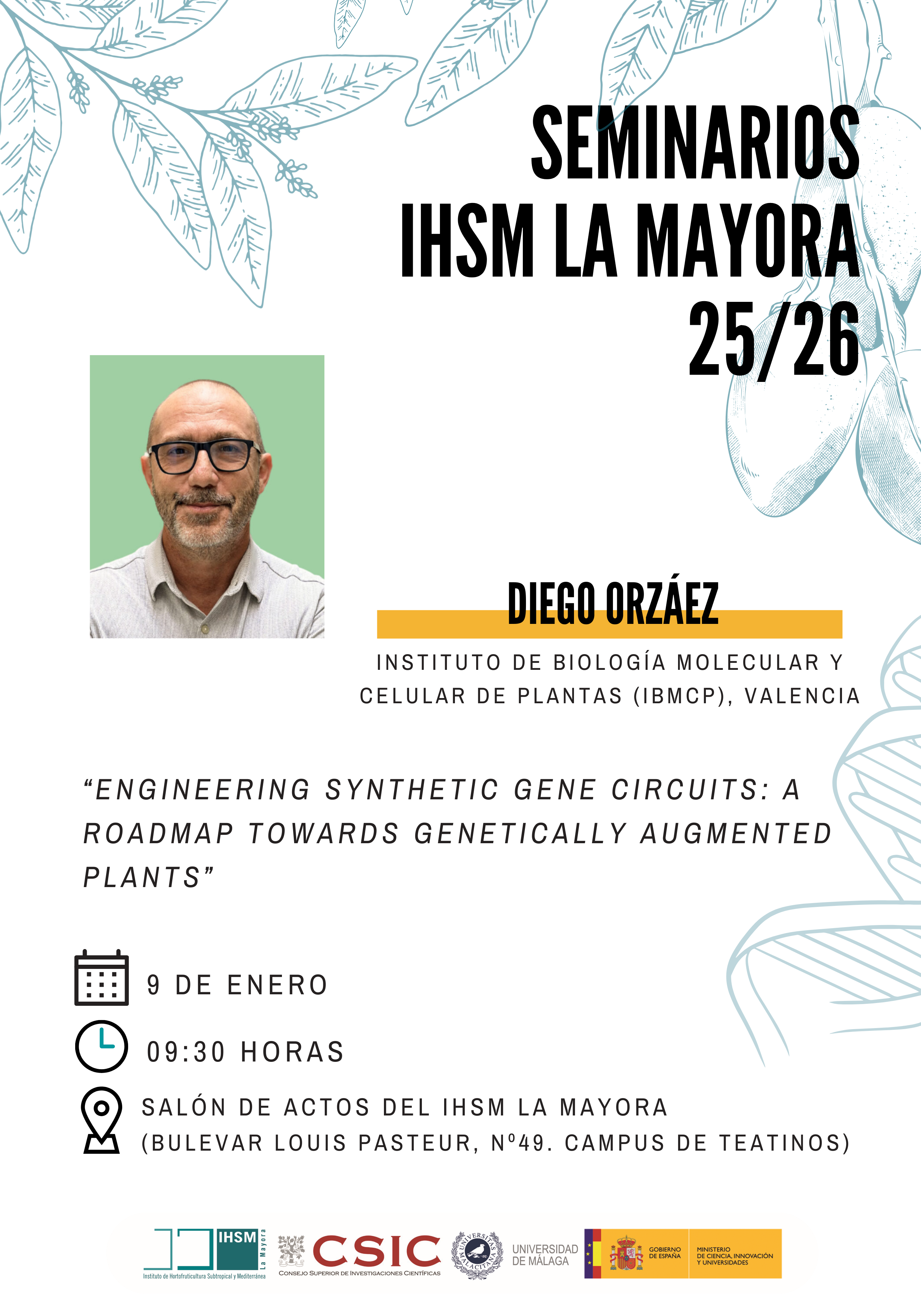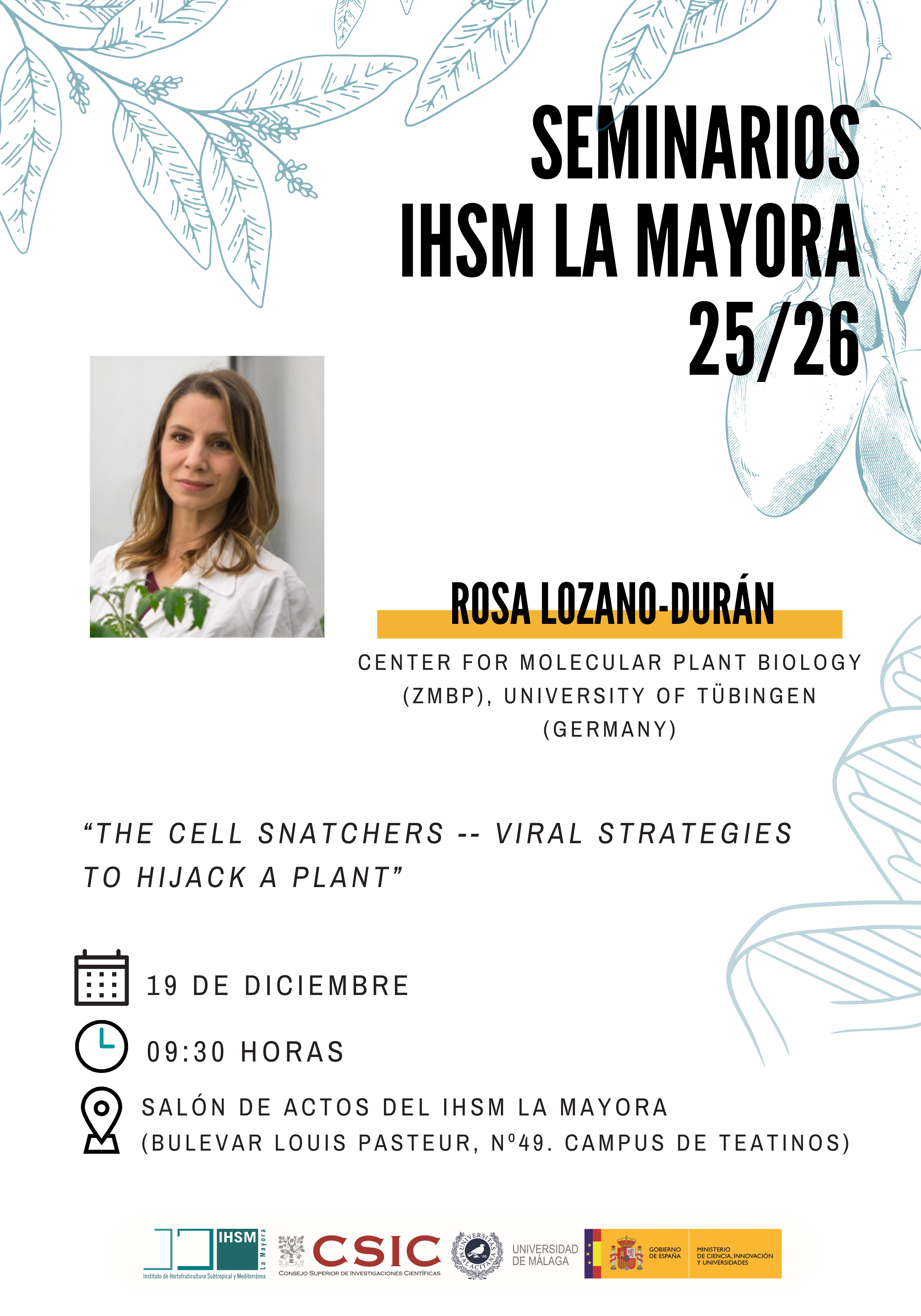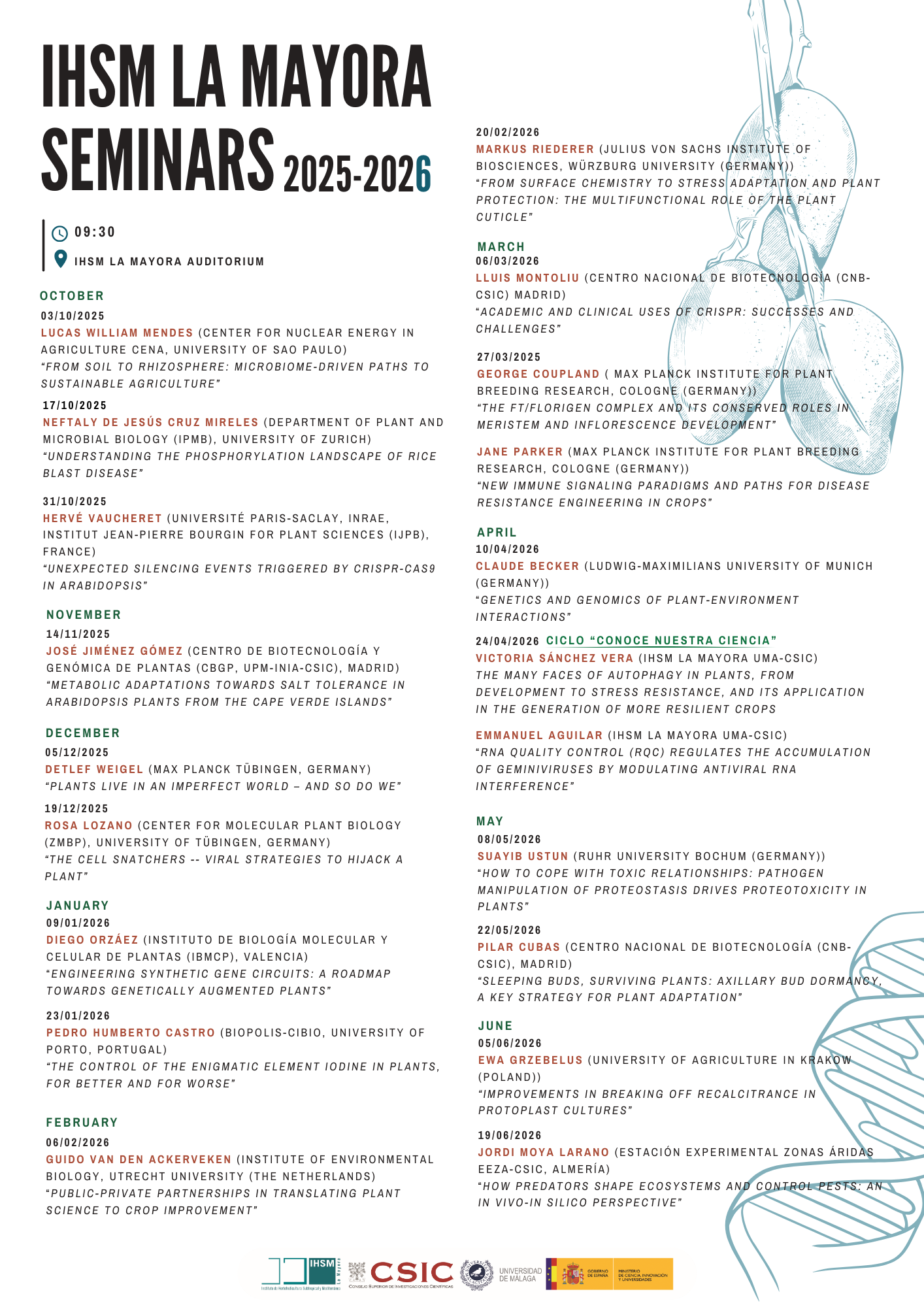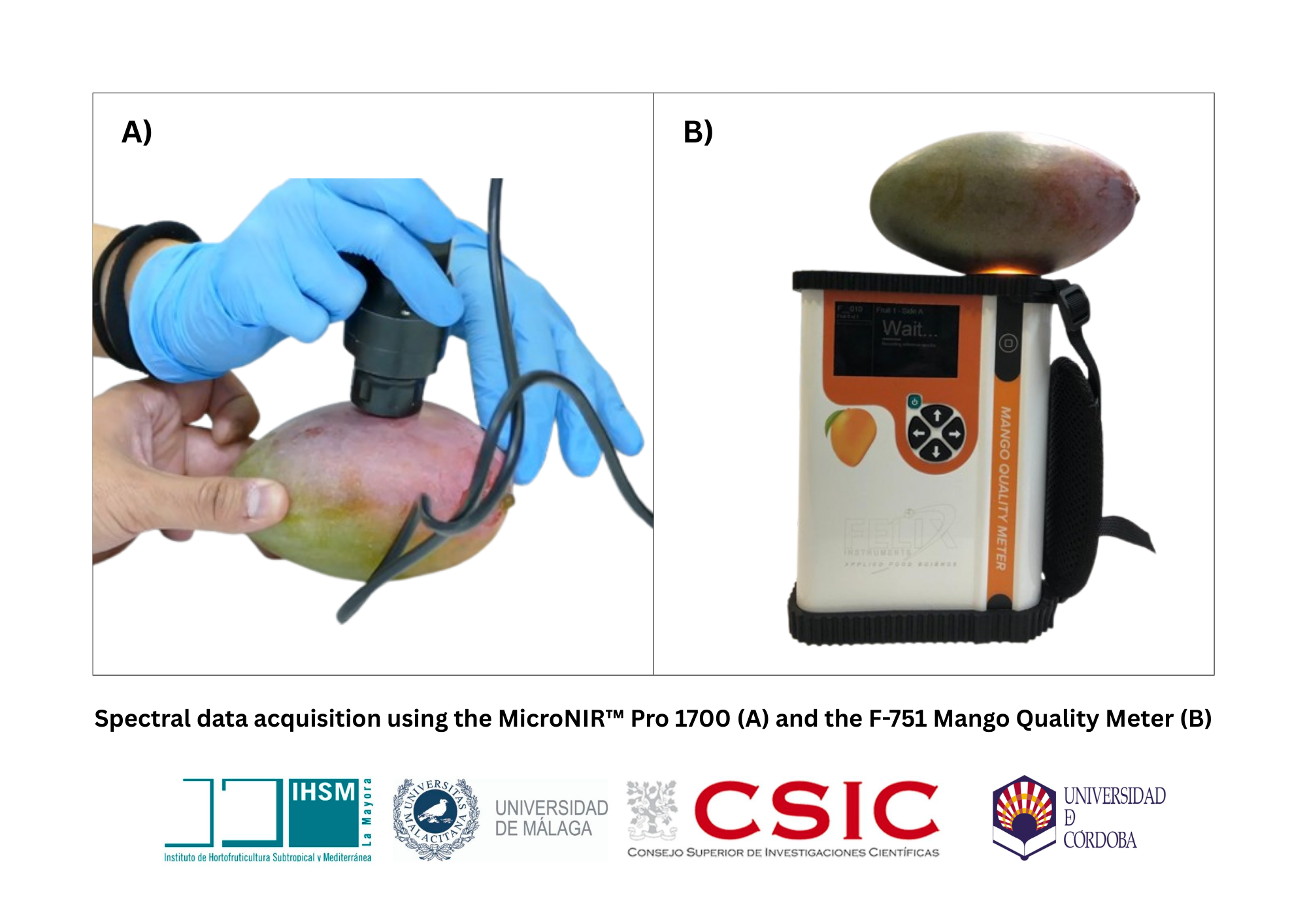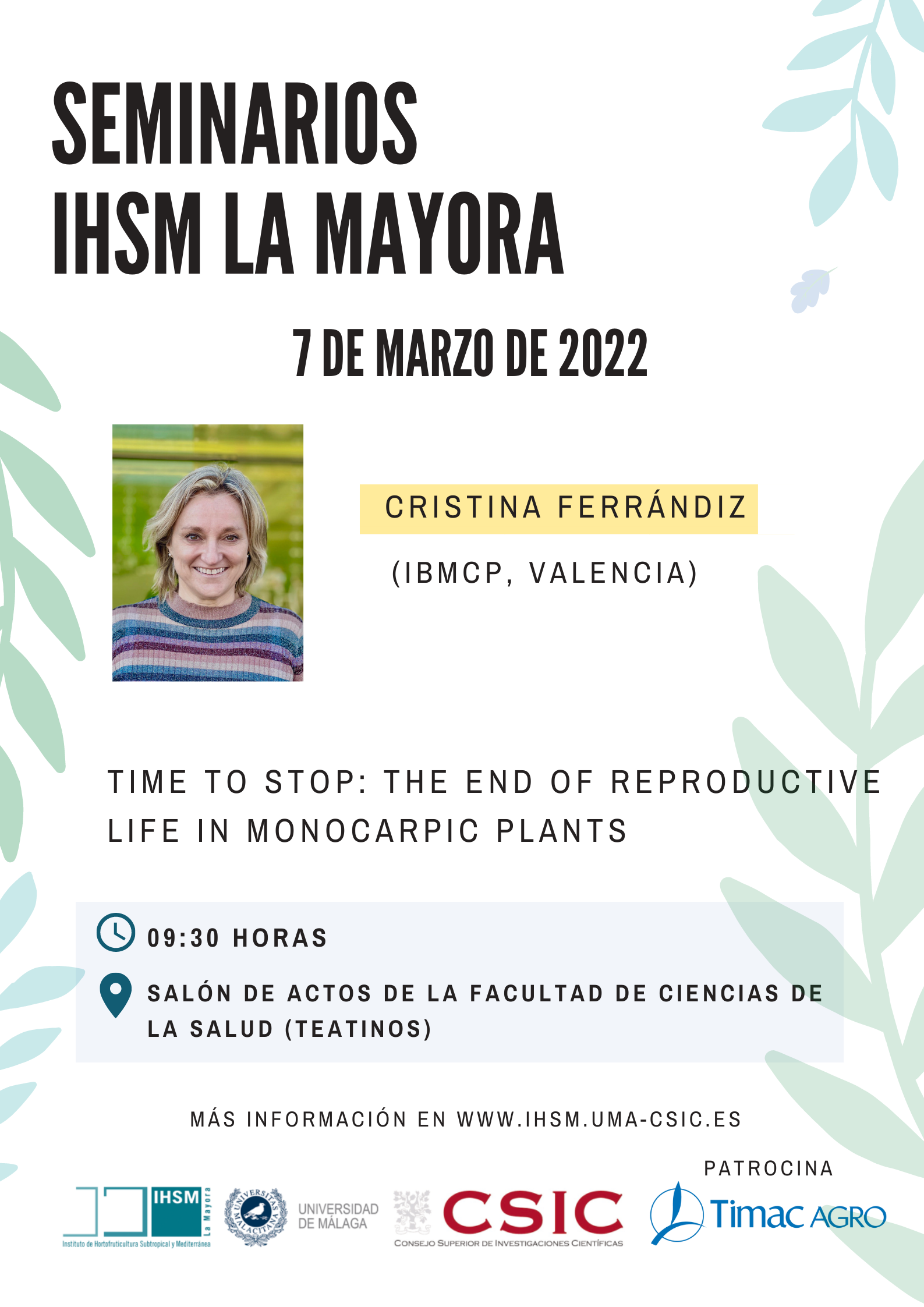
Seminarios IHSM La Mayora - Cristina Ferrándiz (IBMCP, Valencia)
Abstract: For plants with a single reproductive cycle, which are a great proportion of crops, it is extremely important to get the time for reproduction right. This involves not only initiating flowering at optimal conditions to facilitate pollination and fruit set, but also the controlled end of flowering, a general phenomenon that involves a proliferative arrest described for many different annual species, which allows to maximize successful seed production before plant death, in a phenomenon that somehow resembles menopause in humans. A wealth of knowledge has been acquired for decades on how flowering initiation is regulated by environmental and endogenous factors, as well as on the changes that this transition impose in the shoot meristems. However, the mechanisms controlling the end of flowering had been virtually unknown so far, despite the huge ecological and even economic importance of the regulation of fruit and seed production. In the last few years, our lab has been working in this topic by studying molecular, physiological and genetic mechanisms linked to flowering termination. In this seminar, I’ll talk about our contributions and current work in this field to unravel the regulatory pathways and cellular events that coordinate the end of flowering and trigger proliferative arrest, in the context of what it is known and unknown. Bio: Cristina Ferrándiz is currently project leader of the Lab of Evolution and Development of Flowers, Fruits and Reproductive Meristems at IBMCP (CSIC) since 2002. She has worked for almost 25 years on different aspects of Plant Developmental Genetics, focusing on the genetics of carpel and fruit development in several plant species including Arabidopsis, solanaceae, crop legumes and, more recently, rice. Her work aims to better understand the genetic and molecular interactions leading to coordinated patterning of the pistil and the fruit in model systems as well as the functional conservation of these networks in different crop and non-crop species. Her major contributions in this field have been the characterization of several key transcription factors required for fruit dehiscence. She has also contributed to develop non-hierarchical genetic models that explain gynoecium morphogenesis through the formation of protein complexes involving members of several families of transcription factors and how variations in these networks affect the morphological evolution. More recently, her work has also focused in the regulation of the life span in monocarpic species, which are those with a single reproductive cycle in their lives, and that after producing a certain number of fruits enter senescence and die: the work of the lab has uncovered a novel genetic mechanism that controls the length of the reproductive phase and hence fruit production and is currently applying this knowledge to develop biotechnological strategies to increase yield in several crops.

